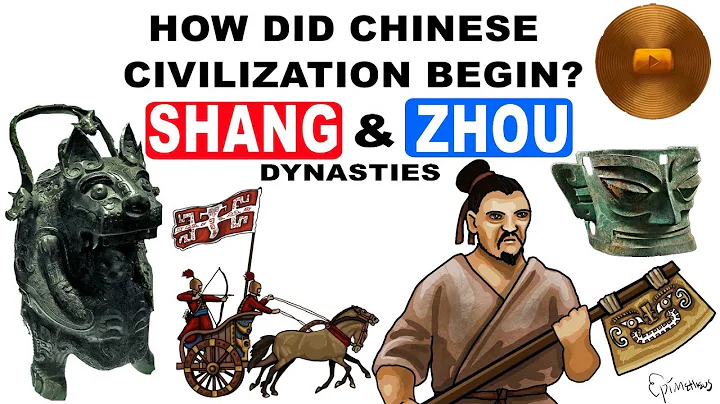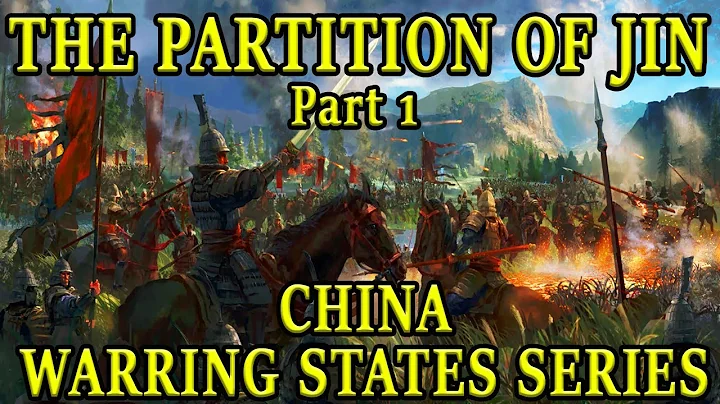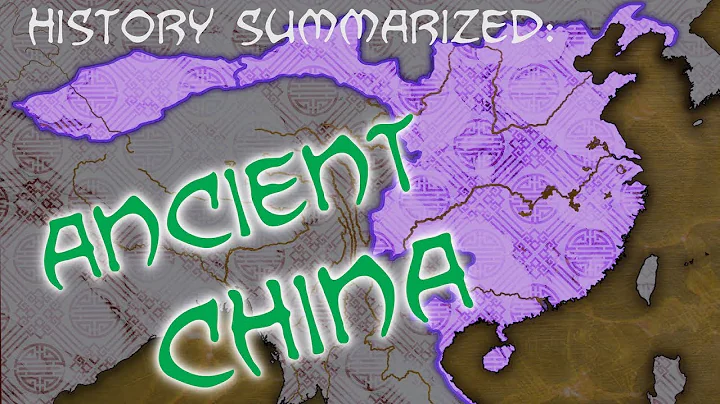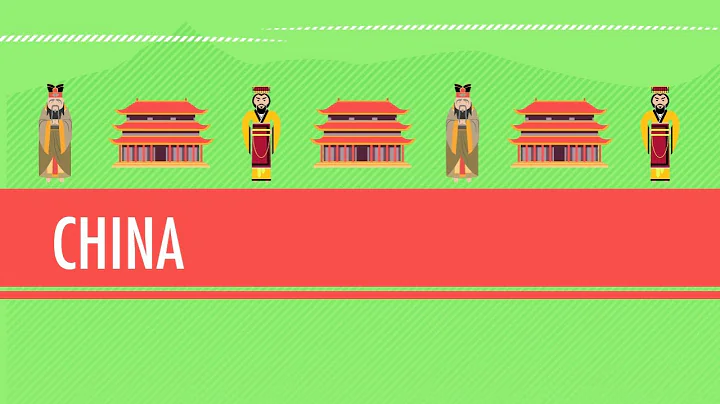Foreword
The Spring and Autumn Period and the Warring States Period were a turbulent period. During this period, various vassal states fought against each other for land and wealth, which brought heavy pain to the people of Li. But at the same time, the Spring and Autumn Period and the Warring States Period were also a glorious period. During this time, the slavery system began to disintegrate and the feudal system began to gradually emerge. The social changes in the Spring and Autumn Period and the Warring States Period were all-round changes, which were not only reflected in the changes in the system, but also in the changes in productivity and culture.

▲Conquests in the Spring and Autumn and Warring States periods
The disintegration and rebirth of the system
1. The disintegration of slavery
During the Xia, Shang and Zhou dynasties, my country’s social system was mainly based on slavery. In a society under the slavery system, slave owners were the aristocrats of the society. class. They enjoy society's productive resources and are the upper class of society. At the same time, slaves were the productive forces of society and the lowest class in society. Slavery society was the first form of national development in my country from primitive society. During the development of thousands of years, slavery society has made great contributions to the development of ancient Chinese society.
But unfortunately, with the development of the times, when our country's historical process developed into the Spring and Autumn Period and the Warring States Period, the feudal society began to gradually rise. On the one hand, it depended on the improvement of social productivity, which caused the slave-owning aristocratic class to gradually lose production resources. On the other hand, it depended on the The rise of the scholar class gradually shook the status of the slave-owning aristocratic class. During the Spring and Autumn Period, with the gradual decentralization of the power of the emperor of the Zhou Dynasty, the rights of the princes and kings were greatly improved. The improvement of the power of the princes and kings gradually disintegrated the national system of slavery. In the end, the princes and kings fought against each other. During the war, our country's history entered the Warring States period. After more than 200 years of conquests in the Warring States Period, the Qin State finally unified the world and established a unified feudal society.

▲Warring States warriors
2, the formation of the feudal system
The formation of any social system has historical inevitability and is the result of the continuous development of history. The same is true for the formation of the feudal system. In the Spring and Autumn Period, with the continuous improvement of productivity, The original social production system was gradually destroyed, especially the emergence of iron tools, which increased the ability of ordinary people to develop wasteland, which led to the emergence of a new landlord class in society. Different from the slave-owning class, the emerging landlord class does not obtain wealth and status through blood and clan relationships. They obtain social resources by relying on advanced productivity. This makes the slave-owning social system originally dominated by slave owners gradually come under attack. destroy.
In the end, under the impact of the emerging landlord class, the status of the slave-owning aristocracy was severely damaged. During the Spring and Autumn Period and the Warring States Period, the disintegration of slavery and the rise of the feudal system went hand in hand. In the evolution of social systems, the disintegration of old systems and the emergence of new systems usually complement each other. This mutually reinforcing relationship is what we call daily historical inevitability. In the process of historical development of , it seems that everything is interconnected and full of inevitable truth.

▲ Life scenes in the Spring and Autumn Period and the Warring States period
3, The decline of clan power
Before the Spring and Autumn Period and the Warring States Period, the ruling class of society mainly relied on clans to maintain relationships, and clans were an important way for the upper class of society to achieve unified governance. In the Xia, Shang and Zhou dynasties, bloodline determines a person's lifelong success or failure. When a person is born, bloodline determines success or failure. However, during the Spring and Autumn Period and the Warring States Period, as the power of the slave-owning aristocracy gradually weakened, the ruling relationship maintained by bloodline clans underwent subversive changes. The status of the idle aristocratic clans began to gradually decline, and was replaced by the emerging gentry class and landlords. Class status rose rapidly. In the process of rising and falling, the traditional status of the ruling class maintained by blood ties was gradually disintegrated, and the country's ruling group was turbulent. Finally, represented by the Zhou royal family, the backward ruling system was replaced.

▲Noble soldiers
The promotion of productivity
1. The disintegration of the well-field system
During the period of slave society, the ruling class invented the well-field system in order to achieve control over the lower class. The so-called well-field system actually means that the ruling class controls the lower class through the use of fertile farmland, in order to achieve control over the people. In the period of slave society, population was an important strategic resource. Its quantity directly determined the rise and fall of a country or dynasty. In order to further control the population, the slave rulers created the well-field system. In this way, they could firmly control the population. The quantity and quality of a country's population. At the same time, the slave-owning aristocratic class collected a large amount of people's wealth through the well-field system and concentrated wealth on the ruling class, thus achieving the prosperity of the country.
However, with the advent of the iron plow ox farming era, the well-field system began to gradually disintegrate, and the traditional slavery economic system was destroyed. The disintegration of the well-field system was the result of the progress of social productivity, which promoted the emergence of iron tools. Compared with stone tools and bronze tools, iron tools are more conducive to agricultural cultivation. Therefore, during the Spring and Autumn Period and the Warring States Period, a large number of abandoned fields were reclaimed. After ordinary people obtained the fields, they were freed from the bondage relationship with the slave-owning nobles, which was even more important. This further promoted the disintegration of the well-field system.

▲ Cultural life during the Spring and Autumn Period and the Warring States Period
2. The emergence of iron tools
During the Spring and Autumn Period and the Warring States Period, with the development of smelting technology, iron tools began to gradually appear. As early as the Xia, Shang and Zhou dynasties, bronze ware was the main metal vessel. Although bronze ware had many advantages, it also had inevitable disadvantages. For example, bronze ware was very heavy and unfavorable for transportation and use. During the Spring and Autumn Period and the Warring States Period, smelting technology developed rapidly, and iron tools began to gradually appear and be used in military and agricultural production.
In a certain sense, the dramatic social changes during the Spring and Autumn Period and the Warring States Period were driven by iron tools. The emergence of iron tools directly promoted the efficiency of land reclamation during the Spring and Autumn Period and the Warring States Period, and provided sufficient economic supply for the military expeditions of various countries during the Spring and Autumn Period and the Warring States Period. At the same time, the emergence of iron directly promoted the development of the military industry, improved the efficiency of the military struggles of various vassal states during the Spring and Autumn Period and the Warring States Period, and shortened the historical process of the Spring and Autumn Period and the Warring States Period.

▲ The contention of a hundred schools of thought during the Spring and Autumn Period and the Warring States Period
Cultural changes
1, The rise of the scholar class
In the period of slavery society, those who could receive knowledge and education were often the children of the aristocratic class. During the Spring and Autumn Period and the Warring States Period, private school educators, represented by Confucius , gradually became active in society. They targeted civilian children and carried out education, which greatly promoted the decentralization of knowledge. After mastering knowledge, a large number of common people became guests of princes and kings and gained a certain social status. During the Spring and Autumn Period and the Warring States Period, people who had acquired a certain amount of knowledge formed a new social class, the scholar class. During the Spring and Autumn Period and the Warring States Period, although the scholar class was not an aristocracy, it was deeply respected in society. They are often the guests of nobles or princes and kings. The nobles and princes and princes respect them very much. For a time, becoming a scholar class became the lifelong dream of many common people. Moreover, due to the rise of private schools, the number of soldiers in society continued to rise, which further promoted class changes in the Spring and Autumn Period and the Warring States Period.

▲The mutual conquests between vassal states
2 and the rise of private schools
The rise of private schools played a unique role in the social changes in the Spring and Autumn Period and the Warring States Period. On the one hand, the rise of private schools triggered the social trends of the Spring and Autumn Period and the Warring States Period. Variety. During the Spring and Autumn Period and the Warring States Period, hundreds of schools of thought contended, and various schools of thought fought and argued with each other. During the debate between various schools of thought, intellectuals and princes and nobles thought about the development of society. The knowledgeable princes and kings began to realize the shortcomings of the traditional slavery system and gradually implemented a series of reforms. has to admit that during the Spring and Autumn Period and the Warring States Period, a series of reform measures implemented by various vassal states were promoted by private educators. Private educators played a role in promoting social changes during the Spring and Autumn Period and the Warring States Period. It can be seen that as early as the Spring and Autumn Period and the Warring States Period, intellectuals had become the main driving force of social change.

▲Social Change
On the other hand, the rise of private schools has greatly promoted the popularization of knowledge. Before the Spring and Autumn Period and the Warring States Period, knowledge was the privilege of the nobility, and common people had no right to enjoy knowledge. However, since Confucius began to establish private schools, knowledge that originally belonged only to the aristocratic class began to gradually reach the general public. The popularization of knowledge to the general public promoted the awakening of consciousness of the general public. They gradually realized the nature of the slave society and began to get rid of the shackles of the slave society. The ideological transformation of the general public is one of the core reasons for social change. It can be seen that during the Spring and Autumn Period and the Warring States Period, outstanding intellectuals represented by Confucius played a role in social and cultural communication. They passed on the knowledge that originally belonged to the aristocracy to the general public, allowing the general public to realize the liberation of knowledge and the transformation of human nature. Liberation, liberation of the mind.

▲People in the Spring and Autumn Period
Summary
During the Spring and Autumn Period and the Warring States Period, the social situation was turbulent, and killings and bloody incidents occurred frequently. But at the same time, the Spring and Autumn Period and the Warring States Period are also a history that we can be proud of, because during this period, our country produced many excellent cultures and classics. During the Spring and Autumn Period and the Warring States Period, my country's early Confucian culture began to gradually take shape, and the social ideology began to gradually transform into a feudal society. It was precisely because of these changes from the inside out that in the following 2,000 years, my country's feudal society could So stable and prosperous. When we look back on this turbulent history as a later person, while seeing the turmoil of this history, we should also see the glory of this history.
References:
"Spring and Autumn Period"
"Great Qin Empire"
" Warring States Policy "





















